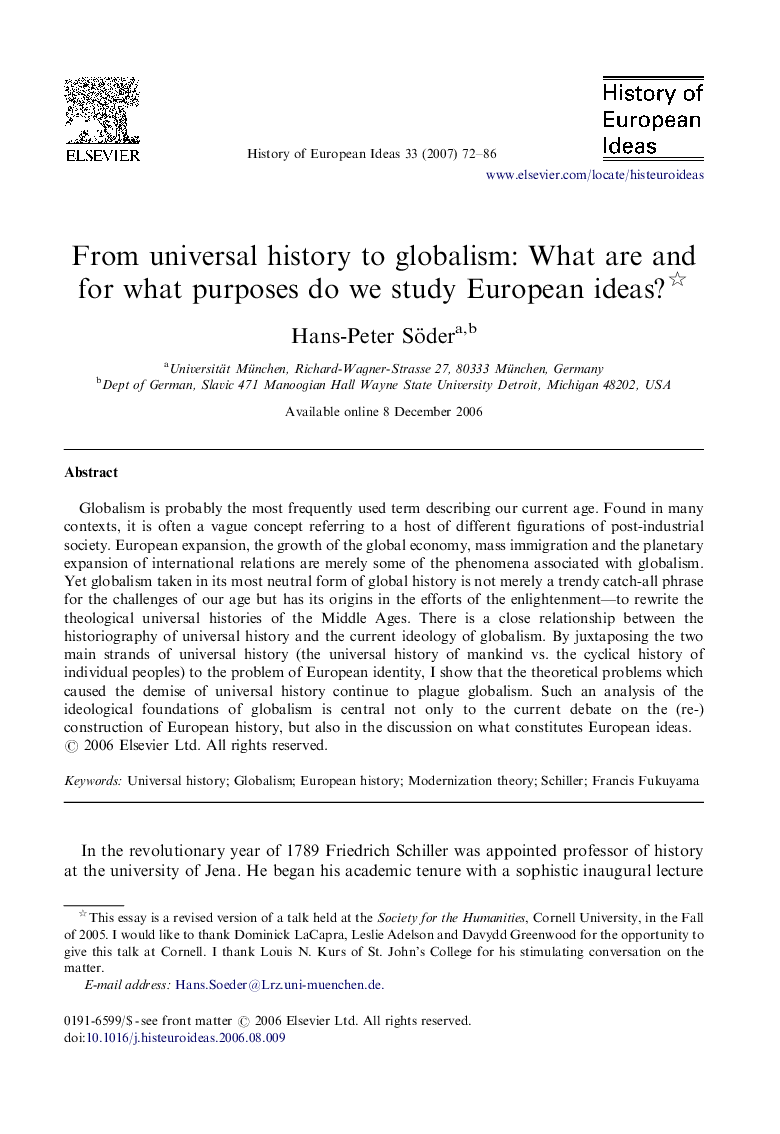| Article ID | Journal | Published Year | Pages | File Type |
|---|---|---|---|---|
| 1159239 | History of European Ideas | 2007 | 15 Pages |
Abstract
Globalism is probably the most frequently used term describing our current age. Found in many contexts, it is often a vague concept referring to a host of different figurations of post-industrial society. European expansion, the growth of the global economy, mass immigration and the planetary expansion of international relations are merely some of the phenomena associated with globalism. Yet globalism taken in its most neutral form of global history is not merely a trendy catch-all phrase for the challenges of our age but has its origins in the efforts of the enlightenment-to rewrite the theological universal histories of the Middle Ages. There is a close relationship between the historiography of universal history and the current ideology of globalism. By juxtaposing the two main strands of universal history (the universal history of mankind vs. the cyclical history of individual peoples) to the problem of European identity, I show that the theoretical problems which caused the demise of universal history continue to plague globalism. Such an analysis of the ideological foundations of globalism is central not only to the current debate on the (re-) construction of European history, but also in the discussion on what constitutes European ideas.
Keywords
Related Topics
Social Sciences and Humanities
Arts and Humanities
History
Authors
Hans-Peter Söder,
